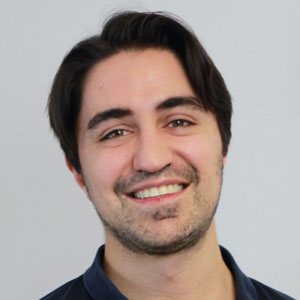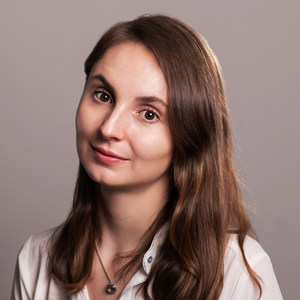The case for mature medical students
When we arrived on campus at McMaster University to begin our medical studies, we were both anticipating some feelings of alienation. Pushing 30 years old and having switched into medicine from unrelated fields, we didn’t quite fit the mould. And yet, we were confident in what we brought to the table: experience, perspective, focus.
Professional and graduate programs in Canada have long touted values that promote diversity of experience. With admissions cycles becoming increasingly competitive, matriculant GPAs steadily inching upward, and the proliferation of targeted preparatory programs, it’s no surprise that admissions panels have increasingly looked toward extracurricular or professional experiences as differentiators and proxies for applicant quality.

This article was first published by Healthy Debate and is being republished under a Creative Commons license. Read the original.
It makes sense. When picking the next batch of business executives, lawmakers and physicians to lead our ranks, we should consider their track records as a strong predictor of their success. As our academic institutions shepherd their students into positions of influence, technical competencies become table stakes, giving way for those with mastery of softer skills to move the needle.
Business schools have understood this for decades: today, of the 13 Canadian universities we investigated that have both Masters of Business Administration programs and medical schools, all explicitly require or strongly recommend post-graduate work experience for admission to their MBA program. Law programs sing a similar tune, albeit a less prescriptive one. While none of the law programs we sampled require work experience, 73 per cent of them provide special consideration for “mature students” – typically those at least five years out from full-time schooling.
With our medical schools, however, the situation is starkly different. Of the 14 English-speaking medical schools in Canada, only two – the University of Calgary and the Northern Ontario School of Medicine – make very slight accommodations for older, experienced candidates. The result is an incoming student body comprised mostly of young gunners, privileged or fortunate enough to recognize and act upon an early interest in medicine, optimizing their course schedules and extracurricular blend to maximize their chances. With admission rates in the single digits, it’s hard to blame them for their efforts, which can often come across as contrived – don’t hate the player, hate the game.
And the game definitely can feel like an uphill battle, especially for older applicants whose academic records have long been set in stone. Typically, with age or career advancement and additional familial or financial responsibilities comes less free time to complete prerequisites or ace the MCAT. There are also psychological barriers, such as the sunk-cost fallacy for a career already in motion, a perceived stigma against mature students, and the lack of a like-minded community surrounding you to help navigate roadblocks.

In the end, many mature applicants self-select out of the process. To be sure, an early start to medical training has its advantages; with postgraduate medical training lasting anywhere from two to more than 10 years should you choose to be, say a neurosurgeon, and the risk of burnout higher than ever, it makes sense to prioritize younger candidates who will have the time and energy to dedicate themselves fully. Could one not argue, however, that mature candidates would have sharper coping tools that would allow them to push back on the systemic forces that cause burnout in the first place? Much noise has been made about our so-called “broken health-care system” – what better way to force change than with an outsider’s perspective?
Despite the uphill battle, mature candidates bring immense clarity of purpose to their medical education. These students have considered other career options; they are well aware that there are many other ways to “help people,” experience challenging work or achieve a high salary. They are also typically further along in choosing a specialty, either based on previous experience interacting with specific disciplines, or from an extensive understanding of the types of work that best fit their lives and personalities. For example, with time already spent in the workforce, mature students are more likely to know if they are a generalist or specialist, customer-facing or back of house, a doer or a thinker.
Finally, mature students are exactly what our bruised medical system desperately needs. Looking to increase interprofessional collaboration in health care? Perhaps candidates with experience as paramedics and nurses might do the trick. Not enough medical staff to get the job done? Consider admitting individuals who have increased team and organization efficiency as part of consulting firms. Struggling to scale virtual care, supported by data science and AI? Recruit medical students who have applied these technologies to other industries. Concerned with physician empathy? Choose candidates who have relationships with people of all different ages and walks of life – based on time spent away from the hamster wheel of academia.
Anecdotally, these are the same students who often worked part-time to put themselves through undergraduate degrees, who based their previous career decision on needing to pay rent, and who don’t have a close relative in medicine to help guide their career decisions – or buy them a car. These are the students who have experience supporting loved ones with illness or as patients themselves, often affecting their education and careers. Mature students may not be a panacea for our health system’s ailments, but at the very least, admitting more of them might help solve the longstanding issue of low socioeconomic diversity in Canadian medical schools.
Getting more mature students into Canadian medical school would not require innovation. Instead, university administrators could borrow from other jurisdictions and professions:
- In law, JD programs often offer separate admissions streams for individuals with greater than 5 years’ work experience. In these separate streams, admissions committees place less emphasis on academic records, instead focusing on applicants’ experiences in other fields, their ability to organize their work, as well as other evidence of intellectual inquiry.
- In business, MBA programs often compare individuals from a broad range of backgrounds, industries and experience levels. They review many of the same application components as medical schools, but “one [component] is not rated over the other – it is holistic.” Such programs encourage applicants to highlight what makes them distinct from their peers, not just their ability to check the right boxes.
- In the United States, many programs are available to support students who have completed a bachelor’s degree, but are not strong applicants for medical admission. These post-baccalaureate programs are usually directly affiliated with medical schools, and tend to cater to students from educationally or economically disadvantaged groups, or who entered university with other career goals in mind.
For both of us studying here at McMaster in the “birthplace of evidence-based medicine”, our case is glaringly lacking in supportive peer-reviewed research. Based on our informal review of the literature, much of it doesn’t yet exist.
In the meantime, we wonder if university administrators might consider other epistemologies, such as those used by their law, business and social science colleagues. At a minimum, we recommend that they get to know the mature students currently in their programs, work with them to co-create change, and treat them with the respect and consideration of fellow professionals.
Enjoy reading ASBMB Today?
Become a member to receive the print edition four times a year and the digital edition monthly.
Learn moreFeatured jobs
from the ASBMB career center
Get the latest from ASBMB Today
Enter your email address, and we’ll send you a weekly email with recent articles, interviews and more.
Latest in Opinions
Opinions highlights or most popular articles

Women’s health cannot leave rare diseases behind
A physician living with lymphangioleiomyomatosis and a basic scientist explain why patient-driven, trial-ready research is essential to turning momentum into meaningful progress.

Making my spicy brain work for me
Researcher Reid Blanchett reflects on her journey navigating mental health struggles through graduate school. She found a new path in bioinformatics, proving that science can be flexible, forgiving and full of second chances.

The tortoise wins: How slowing down saved my Ph.D.
Graduate student Amy Bounds reflects on how slowing down in the lab not only improved her relationship with work but also made her a more productive scientist.

How pediatric cataracts shaped my scientific journey
Undergraduate student Grace Jones shares how she transformed her childhood cataract diagnosis into a scientific purpose. She explores how biochemistry can bring a clearer vision to others, and how personal history can shape discovery.

Debugging my code and teaching with ChatGPT
AI tools like ChatGPT have changed the way an assistant professor teaches and does research. But, he asserts that real growth still comes from struggle, and educators must help students use AI wisely — as scaffolds, not shortcuts.

AI in the lab: The power of smarter questions
An assistant professor discusses AI's evolution from a buzzword to a trusted research partner. It helps streamline reviews, troubleshoot code, save time and spark ideas, but its success relies on combining AI with expertise and critical thinking.


